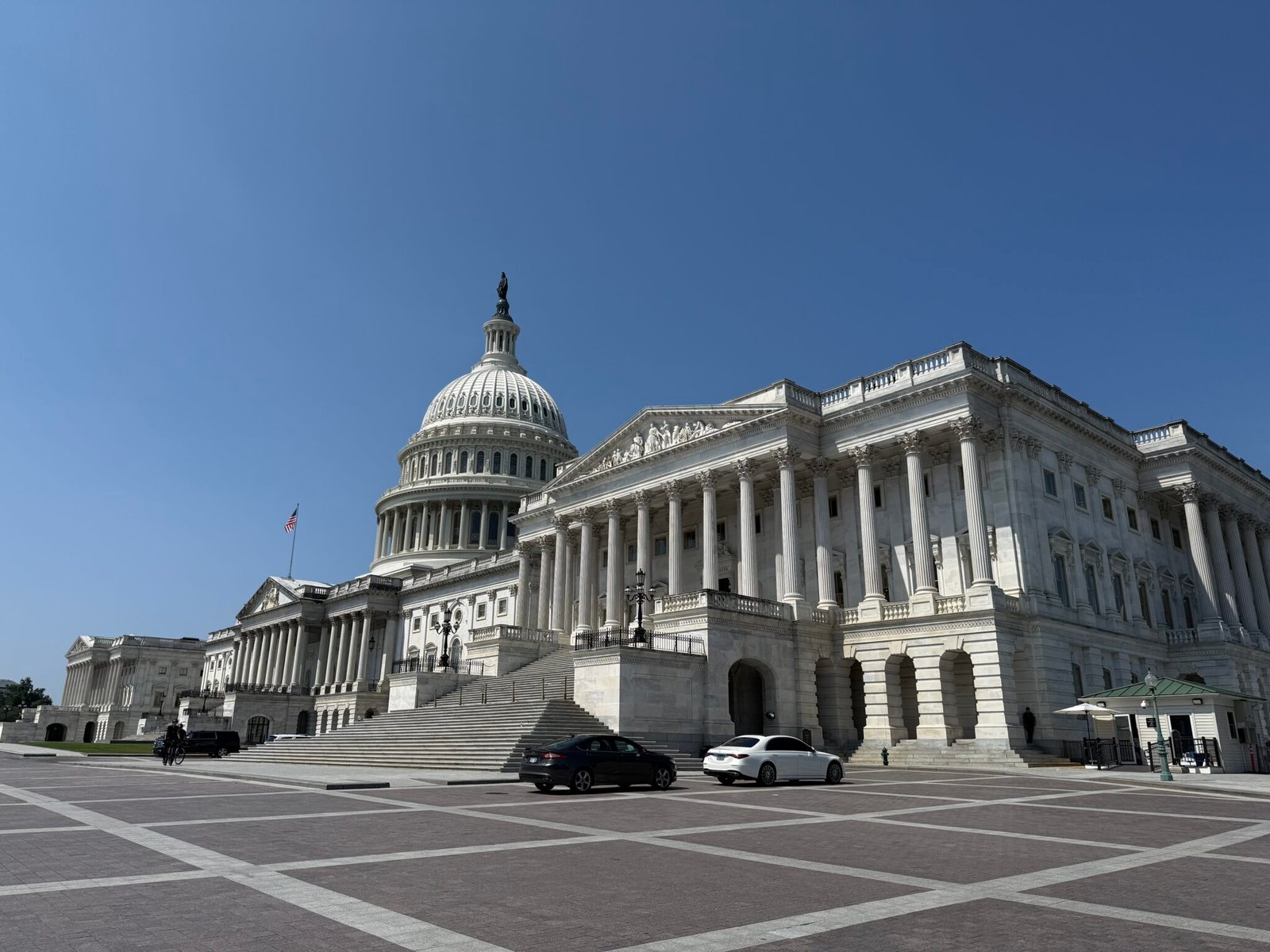budget
US Senate Sparks Controversial Debate on GOP Mega-Bill Amid Uncertain Future

WASHINGTON — The U.S. Senate commenced debate on a significant Republican-sponsored bill Sunday afternoon, but multiple hurdles remain before it can become law, raising the potential for increased GOP dissent.
To proceed, senators must finalize a review with the parliamentarian to ensure compliance with reconciliation rules. Following that, they will engage in an extensive amendment voting session.
The proposed legislation, which features sweeping tax cuts and spending reductions, requires almost unanimous GOP support to progress. Ongoing discussions aimed at modifying the Medicaid provisions are particularly critical.
Senate Majority Leader John Thune indicated support for an amendment that would adjust federal Medicaid spending in states that expanded the program under the Democrats’ 2010 healthcare law. Currently, the federal government covers 90% of costs for these enrollees.
“We’re doing what we can to assist this effort,” Thune stated, referencing an amendment from Florida Sen. Rick Scott. He expressed optimism about garnering substantial support within the party, framing the changes as fiscally beneficial.
Thune avoided directly addressing concerns about how this adjustment might alienate House Republicans representing affected districts, thereby complicating the bill’s path to President Trump. “Conversations with Speaker Mike Johnson and our colleagues have been ongoing,” he remarked.
As it stands, 41 states, along with the District of Columbia, have adopted the Medicaid expansion according to the health care research organization KFF.
The legislative environment remains fluid. Unlike typical Senate procedures, numerous components of this bill are still under discussion, leaving room for significant alterations before a final vote, which could occur as soon as Tuesday.
Progressive leaders are utilizing the reconciliation process, which necessitates that each element affects federal spending or revenue in a substantial way. This means that both parties must justify various components before the Senate parliamentarian, leading to further adjustments.
Adding further complexity, a recent nonpartisan report from the Congressional Budget Office projected the bill would add $3.253 trillion to deficits over the next decade.
In response to concerns about fiscal responsibility, Trump posted on social media, urging caution among Republicans, while expressing confidence that economic growth would recover any losses incurred.
The Senate voted largely along party lines to advance the bill, though the leadership had to extend the voting period to secure adequate support. Changes continued to unfold, with the parliamentarian ruling that specific provisions needed revision or removal from the lengthy legislation.
One notable setback involved language aimed at persuading GOP Senator Lisa Murkowski of Alaska to back the bill. This would have enhanced Medicaid matching rates in Alaska and Hawaii, but current rulings may obstruct that effort.
On a more favorable note for Republicans, recent rulings cleared provisions facilitating a gradual decrease in the maximum Medicaid provider tax rates.
The fate of several other contentious issues remains uncertain, including a proposal to limit Medicaid funding to Planned Parenthood for a year, potentially restricting care access for beneficiaries. Critics argue this could severely impact patients relying on their services for essential health care.
Senate Finance Committee Chairman Mike Crapo did not respond to inquiries regarding the implications of recent rulings, while ranking member Ron Wyden criticized the GOP’s approach to health care policies.
As Republicans aim to pass the bill before the Fourth of July, they face multiple challenges ahead. With an open amendment process, public disputes among GOP senators are likely, which could further complicate negotiations.
Each amendment proposed during this phase can significantly alter the legislation’s trajectory, extending the process indefinitely. If the bill receives sufficient support, it will return to the House for final approval, where concerns from both moderate and far-right factions may emerge.
Senators Thom Tillis of North Carolina and Rand Paul of Kentucky voted against advancing the bill, suggesting they may also oppose the final passage. Tillis announced he would not seek reelection after facing backlash from Trump, further complicating party dynamics.
Senate approval would send the bill back to the House, where Speaker Johnson must maintain strong support among House Republicans to facilitate its passage to Trump for signing.


















